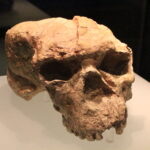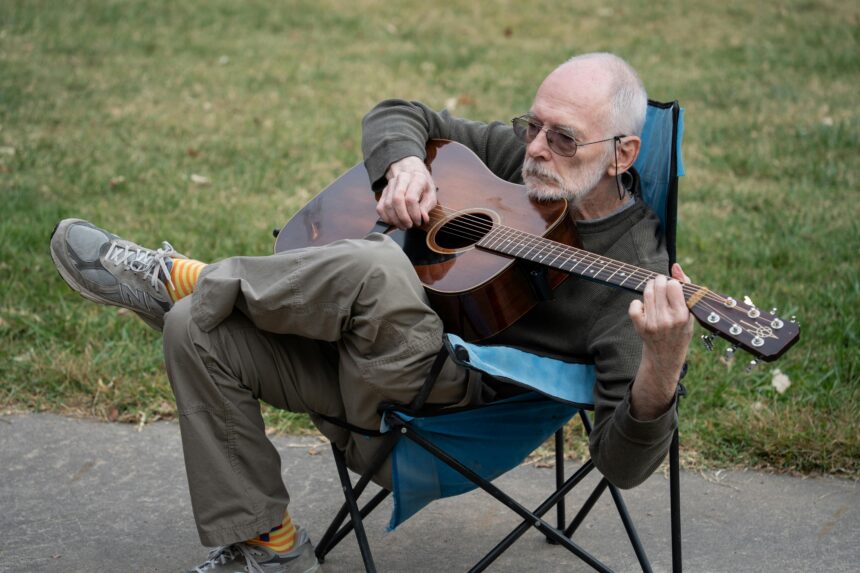Engaging in music, dance, art, or strategy video games might slow how quickly your brain ages, making it function as if it were years younger. A new study with over 1,400 participants shows that people highly skilled in these creative activities have brains that appear 5 to 7 years younger than their actual age, based on a measure called brain age gaps, derived from brain wave scans. This suggests creative hobbies could help protect against age-related brain decline, potentially guiding future health strategies to promote mental well-being through arts and games.
The study’s core finding comes from analyzing brain wave patterns (using EEG scans) in 1,472 people. Those with deep expertise in tango dancing, playing instruments, creating visual art, or playing games like StarCraft II showed brains that looked younger—by about 5.5 years on average—compared to less experienced peers. Even beginners who trained briefly in video games saw their brain age drop by about 3 years, with stronger effects linked to greater skill, particularly in brain regions tied to attention and planning that weaken with age.
Researchers used advanced computer models to predict a person’s age from their brain wave connections, achieving high accuracy. They tested these models on groups of creative experts and learners, while applying math techniques to measure how efficiently brain regions work together and how strongly they connect. These methods overcame challenges like differences in scan quality by carefully standardizing the data, revealing how creative activities enhance brain network strength and flexibility.
This work addresses a gap in science: While creativity is known to boost mood and thinking, its role in directly protecting brain health—especially against the faster aging seen in diseases like dementia—wasn’t well understood. Earlier studies, mostly on music, gave mixed results and didn’t explore diverse hobbies or the underlying reasons, like how the brain adapts over time through plasticity.
The findings aren’t final—smaller group sizes per activity and reliance on brain wave scans alone (without other methods like MRI) mean more research is needed to confirm the results across broader populations. Future studies could explore additional creative pursuits, like writing, or test these ideas in health programs to delay brain aging. What creative activities do you enjoy, and how might they benefit your brain?
Engaging in music, dance, art, or strategy video games might slow how quickly your brain ages, making it function as if it were years younger. A new study with over 1,400 participants shows that people highly skilled in these creative activities have brains that appear 5 to 7 years younger than their actual age, based on a measure called brain age gaps, derived from brain wave scans. This suggests creative hobbies could help protect against age-related brain decline, potentially guiding future health strategies to promote mental well-being through arts and games.
The study’s core finding comes from analyzing brain wave patterns (using EEG scans) in 1,472 people. Those with deep expertise in tango dancing, playing instruments, creating visual art, or playing games like StarCraft II showed brains that looked younger—by about 5.5 years on average—compared to less experienced peers. Even beginners who trained briefly in video games saw their brain age drop by about 3 years, with stronger effects linked to greater skill, particularly in brain regions tied to attention and planning that weaken with age.
Researchers used advanced computer models to predict a person’s age from their brain wave connections, achieving high accuracy. They tested these models on groups of creative experts and learners, while applying math techniques to measure how efficiently brain regions work together and how strongly they connect. These methods overcame challenges like differences in scan quality by carefully standardizing the data, revealing how creative activities enhance brain network strength and flexibility.
This work addresses a gap in science: While creativity is known to boost mood and thinking, its role in directly protecting brain health—especially against the faster aging seen in diseases like dementia—wasn’t well understood. Earlier studies, mostly on music, gave mixed results and didn’t explore diverse hobbies or the underlying reasons, like how the brain adapts over time through plasticity.
The findings aren’t final—smaller group sizes per activity and reliance on brain wave scans alone (without other methods like MRI) mean more research is needed to confirm the results across broader populations. Future studies could explore additional creative pursuits, like writing, or test these ideas in health programs to delay brain aging. What creative activities do you enjoy, and how might they benefit your brain?
Story Source: Migeot et al. (2025), published in Nature Communications. Read the original study here.







